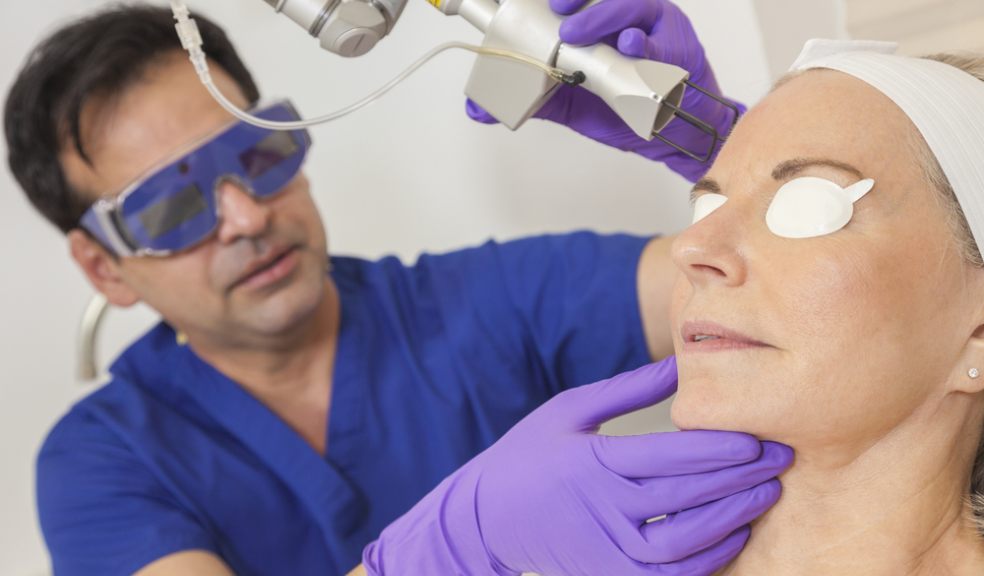
New professional standards for cosmetic practice
Only surgeons should provide cosmetic surgery and only doctors, dentists and nurses who have undertaken appropriate training should provide non-surgical cosmetic treatments such as Botox, recommends new professional standards for cosmetic practice.
Currently certain cosmetic treatments can be administered by anyone, anywhere with no medical training. The guidelines state that as standard practice, practitioners should discuss relevant psychological issues (including any psychiatric history) with the patient to establish the nature of their body image concerns and their reasons for seeking treatment. They should not at any point imply that treatment will improve a patient’s psychological wellbeing.
Aimed at all doctors, dentists and nurses involved in cosmetic practice, the comprehensive document entitled Professional Standards for Cosmetic Practice, focuses on the behaviour and competencies medical professionals should be expected to demonstrate when providing cosmetic procedures.
The standards, issued by the Royal College of Surgeons (RCS), state that financial deals such as time-limited discounts should be banned and stringent psychological assessment promoted. They lay out the professional duty practitioners have to their patients, including the need to ensure they have a clear understanding of the risks of the procedure, outlining consequent aftercare and being transparent about costs from the outset.
Professor Norman Williams, President of the Royal College of Surgeons, says:
“While the Colleges and professional organisations involved in cosmetic practice are neither regulators nor legislators, the profession has a responsibility to provide standards to which we would expect our members to work. We have serious concerns that not all those who offer cosmetic procedures are adequately qualified, or that patients are getting accurate information prior to treatment. We hope these standards will feed into the ongoing review of the industry led by the NHS Medical Director, Sir Bruce Keogh, and improve quality of care for patients going forward.”
Developed by a working group of key professionals including surgeons, psychiatrists, psychologists and dermatologists, key points in the professional standards include:
- Practitioners have a duty to manage a patient’s expectations of how they will feel after treatment. They should not imply that patients will feel ‘better’ or ‘look nicer’, and should instead use unambiguous language like ‘bigger’ or ‘smaller’ to describe what that patient is trying to change.
- All practitioners should consider whether they should refer a patient to a clinical psychologist before proceeding with further consultations or treatments. Pre-procedure discussions should include the disclosure of relevant psychiatric history such as eating disorders and the practitioner should document any signs or symptoms of Body Dysmorphic Disorder. Psychological factors contributing to the motivation to undergo the procedure and expectations of outcome should also be assessed.
- Marketing and advertising must be honest and responsible, using only real patient photographs that have not been air brushed or digitally enhanced.
- Currently non-surgical procedures such as laser treatments or injectables can be administered by people with no healthcare qualifications whatsoever. The RCS recommends that only licensed doctors, registered dentists and registered nurses who have undertaken appropriate training should provide any cosmetic treatment.
- Only those who have qualified as a medical doctor and undertaken post-graduate surgical training should carry out invasive procedures such as breast surgery or liposuction.
Mr Ian Martin, NCEPOD Clinical Co-ordinator, says:
"In 2008 we identified poor regulation, low volume practice, and deficiencies in training. We also identified poor standards of consent and unrealistic advertisements which had tended to stress the benefits of surgery without dealing sufficiently with potential side effects. The lack of standards and systematic audit was also highlighted. We are very pleased to note that the Department of Health and Royal College of Surgeons are now taking steps to address these deficiencies in cosmetic surgical practice and support the report published today."
The standards also outline the importance of having a cooling off period between the initial consultation and treatment – giving at least two weeks for invasive surgical procedures to allow patients to reflect on their decision. It states that financial inducements, such as time limited special offers and discounts, are unacceptable and calls for measures to ensure that fees are transparent and set out in advance.
They conclude by highlighting that all cosmetic procedures should be carried out on licensed premises with resuscitation equipment readily available in the event of an emergency. The concept of ‘Botox parties’ or ‘filler parties’ are entirely at odds with these standards.
The Exeter Daily asked Dr Ros Debenham from the Radiance Medi Spa, soon to open in Exeter, what she thought of the recommendations:
"The latest news about Land mark standard states that only doctors, dentists and nurses who have undertaken appropriate training should provide non-surgical treatments such as Botox and dermal fillers. This is welcome news as too often I have had to deal with clients who have had problems with treatments done by unqualified therapists.
"Clients must be aware of this and not be lured by cut-price, time-bound offers. These are specialised treatments that require experience, in-depth knowledge of the anatomy, physiology of the body and assessment of the person's psychology. When done by an experienced practitioner, the results are natural and transforming. In the wrong hands, Botox and dermal fillers are fraught with problems such as drooping eyelids or bruising and lumps under the skin."
Dr Ros Debenham Radiance MediSpa Exeter www.radiancemedispa.co.uk 0845 1843175













